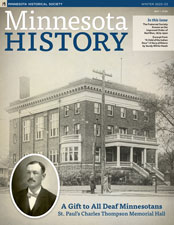
Juliana Boner
- Librarian
- juliana.boner@anokaramsey.edu
- 763
Robyn Slusher
763-433-1819
Rapids Campus
Gina Pancerella-Willis
763-433-1197
Juliana Boner
763-433-1358
ARCC Tutoring web page:
http://www.anokaramsey.edu/resources/tutoring-services/
Email:
writing.tutoring@anokaramsey.edu
The second tab contains information about resources in our library and how to find them using LibrarySearch, the library catalog.
The third tab contains information about online resources, including scholarly journal databases and online credible sites for research.
On the web, it can be a challenge to know what information is credible and accurate. You may have heard about the CRAAP test (more information here), criteria to help evaluate a website. To complement this strategy, digital literacy expert Mike Caulfield developed the SIFT method, which provides additional valuable strategies for online researchers.
SIFT, or the Four Moves:
S - Stop
I - Investigate the source
F - Find additional sources/better coverage
T - Trace Information back to the original context
Online Verification Skills - YouTube videos from Mike Caulfield
Additional guides to help you evaluate your sources:
Evaluating Resources (University of California, Berkeley)
Evaluating Information (American Library Association)
Critically Analyzing Information Sources (Cornell University Library)
Citing your sources in a bibliography is a required part of the research process. It allows others to verify your information and acknowledges the previous work of other researchers and writers.
Click here for a General Guide to Understanding Written Plagiarism
Looking for information about citing your sources? Different styles like APA, Chicago, and MLA will require you to format information and sources differently.
After using any of these resources, always double-check your citations against the most current published guide. Below you will find resources for the most commonly used citation styles from the style guide homepages, as well as, the Purdue University Online Writing Lab (OWL).
- APA - American Psychological Association style is most commonly used to cite sources within the sciences. APA Tutorial
- MLA - Modern Language Association style is most commonly used to write papers and cite sources within the liberal arts and humanities.
- CMS - Chicago Manual of Style covers a variety of topics from manuscript preparation and publication to grammar, usage, and documentation. CMS Quick Chart
These books are available in both campus libraries.
 Publication Manual of the American Psychological Association
Publication Manual of the American Psychological Association
ISBN: 9781603293518
Publication Date: 2020
 MLA Handbook by The Modern Language Association of America
MLA Handbook by The Modern Language Association of America
ISBN: 9781603293518
Publication Date: 2021
 The Chicago Manual of Style, by University of Chicago Press Editorial Staff
The Chicago Manual of Style, by University of Chicago Press Editorial Staff
ISBN: 9780226287058
Publication Date: 2017
 Scientific Style and Format by Council of Science Editors
Scientific Style and Format by Council of Science Editors
ISBN: 9780226116495
Publication Date: 2014
Click in the search box and type the title of a book you want, the author's name, or a couple of keywords related to your topic. Click Search.
On our library page that opens, use the options in the menu on the left side under "Modify my results" to focus your search. Click on a title to get more information about the item, to find the location of the item, or to request it.
If we don't have the items you need, we can request them from other libraries through InterLibrary Loan (ILL). There's no cost involved, it's easy to do, and it's convenient. The books will be sent to us, and you can check them out and return them here.
If you want help finding or requesting books, just ask! Call or email us at ARCC.Library@anokaramsey.edu. We are happy to help!
Browse the shelves: Sections F600 - F615 are focused on Minnesota history.
Browse the Minnesota History Collection in our library catalog.
 Minnesota History is a quarterly publication of the Minnesota Historical Society. Print issues are available in the library.
Minnesota History is a quarterly publication of the Minnesota Historical Society. Print issues are available in the library.
Academic Search Premier
This multi-disciplinary database provides active full text for more than 3,100 journals, including active full text for nearly 2,750 peer-reviewed journals.
American Antiquarian Society (AAS) Historical Periodicals Collections - contain over 7500 titles from the seventeenth through the late nineteenth century.
- AAS Series 1: 1691-1820
- AAS Series 2: 1821-1837
- AAS Series 3: 1838-1852
- AAS Series 4: 1853-1865
- AAS Series 5: 1866-1877
Covers every area of academic study and general interest subject area and offers information dating as far back as the 1800s.
JSTOR - Archival journals and primary sources collection
Historic Fort Snelling explore how the area known as Bdote by the Dakota became the site of Minnesota’s first National Historic Landmark – Historic Fort Snelling
Library of Congress Minnesota-related online content
Mapping Prejudice - visualizing the hidden histories of race and privilege in the built environment
Minnesota Digital Library (MDL) supports discovery and education through access to unique digital collections shared by cultural heritage organizations from across the state of Minnesota.
Minnesota Digital Newspaper Hub - contains geographically and culturally diverse newspapers published between 1849 and today
Minnesota Historical Society - a nonprofit educational and cultural institution dedicated to preserving the history of the U.S. state of Minnesota.
MNopedia - A resource for reliable information about significant people, places, events, and things in Minnesota history.
How to use eBooks: https://ebsco.libguides.com/ebooks/basics
**NEW!** How to access eBooks in the new EBSCO user interface
eBooks related to MN History
Class Action: the Landmark Case that Changed Sexual Harassment
Degrees of Freedom : The Origins of Civil Rights in Minnesota, 1865–1912
The Haymakers: A Chronicle of Five Farm Families
The Infamous Dakota War Trials of 1862 : Revenge, Military Law and the Judgment of History
The Latehomecomer: a Hmong Family Memoir
North Country: The Making of Minnesota
The North Star State: A Minnesota History Reader
Additional titles may be found by searching for "Minnesota history" in the EBSCO eBook database here.

